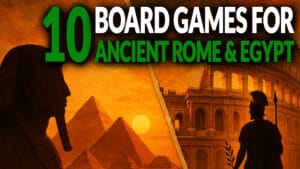Crowdfunding has given us some truly incredible innovations, but for every success story, there’s a cautionary tale of overpromises, mismanagement, and sometimes outright scams. Today, we’re diving into the most disappointing Kickstarter projects from 2015 to today — those that raised hopes, took millions, and left backers shaking their heads.
15 | Conan
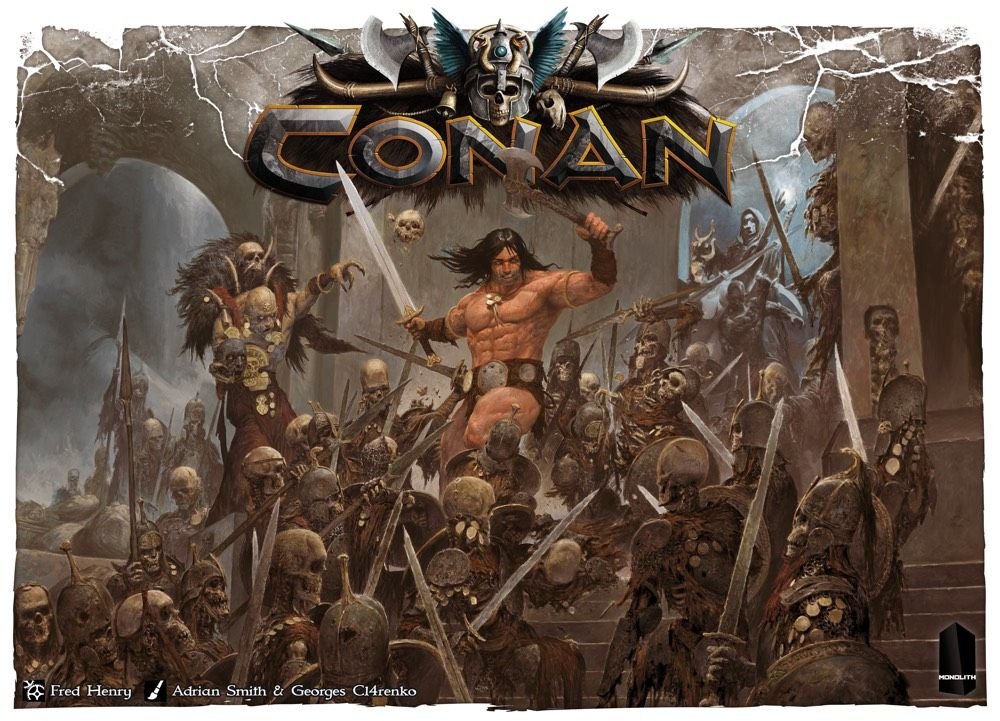
Conan by Monolith was one of the most ambitious and highly anticipated Kickstarter projects in the tabletop gaming scene. Launched in 2015, it promised an epic, miniatures-heavy adventure game set in Robert E. Howard’s Hyborian Age. Designed as a one-versus-many experience, one player controlled the Overlord, directing enemy forces, while others played as Conan and his allies, completing scenario-based missions. The game’s core mechanics revolved around an innovative energy gem system, where players managed stamina for movement, attacks, and special actions—creating a dynamic, strategic combat flow.
Despite raising over $3.3 million, Conan left many backers frustrated. While the miniatures were undeniably gorgeous, the rulebook was a mess, riddled with inconsistencies and unclear mechanics, forcing players to seek house rules or third-party clarifications. The game also lacked promised expansions and proper long-term support, with Monolith shifting focus to other projects instead of refining Conan’s rough edges. The stretch goal content, though abundant, felt underdeveloped, leaving backers with a game that had immense potential but fell short due to poor execution. The campaign was a classic example of how over-promising and under-delivering can sour even the most exciting crowdfunding success.
14 | The Others
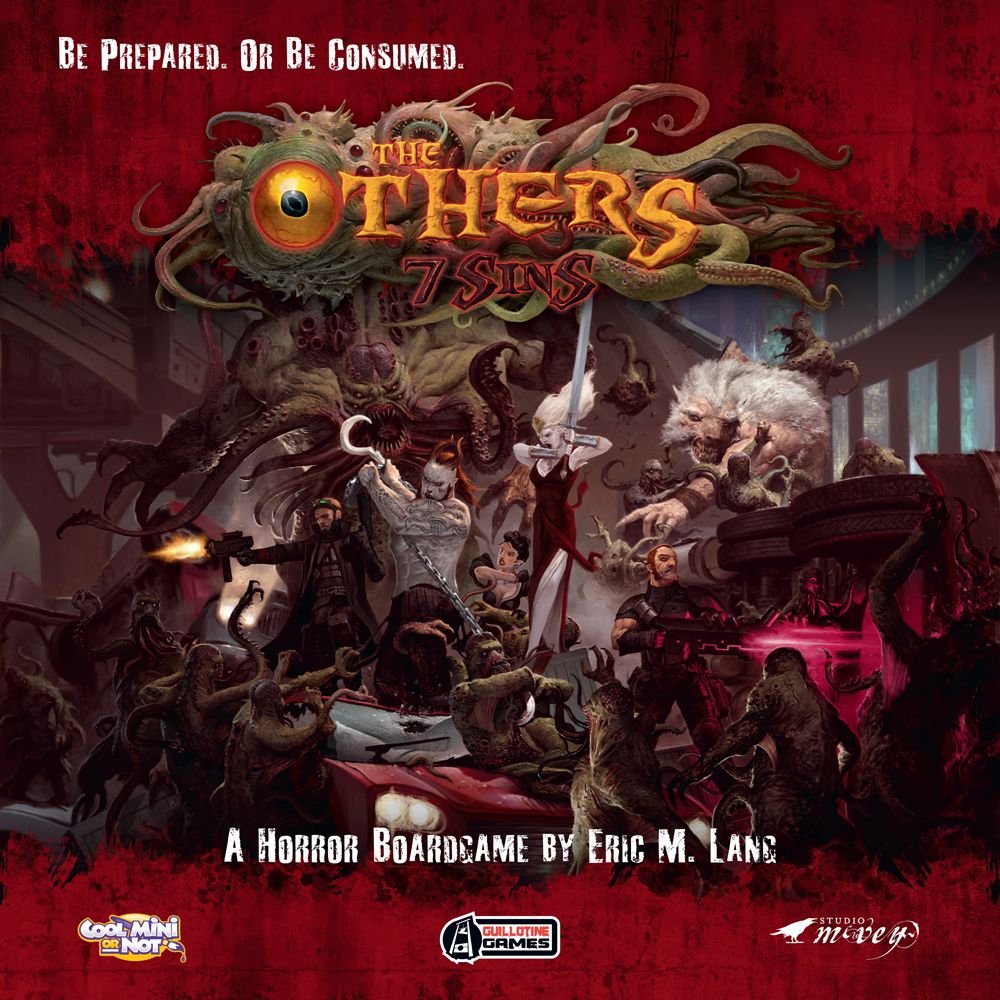
The Others: 7 Sins, launched by CMON in 2015, promised a dark, horror-themed miniatures board game where players would battle against the embodiment of the seven deadly sins. Designed by Eric M. Lang, the game featured an asymmetric one-versus-many system, with one player controlling a chosen Sin while the others took on the role of heroes from the paranormal agency F.A.I.T.H. The game’s core mechanics revolved around dice-based combat, corruption as a resource with dangerous consequences, and modular city tiles that allowed for dynamic scenario-driven gameplay. With CMON’s reputation for high-quality miniatures and a grim Lovecraftian aesthetic, the campaign raised over $1.4 million, setting high expectations for backers.
But unfortunately, the final product left many backers underwhelmed. While the miniatures were indeed detailed, the gameplay failed to deliver the strategic depth many had hoped for, relying heavily on dice luck and repetitive mission structures. The balance between heroes and Sins felt uneven, with certain Sins proving far more powerful than others, leading to frustratingly lopsided matches. Additionally, CMON’s distribution of stretch goals and expansions caused issues, with some regions facing delays and others receiving incomplete shipments. Many also felt the campaign oversold its narrative depth, as the promised horror and thematic immersion ended up feeling secondary to the game’s mechanics.
13 | The King's Guild
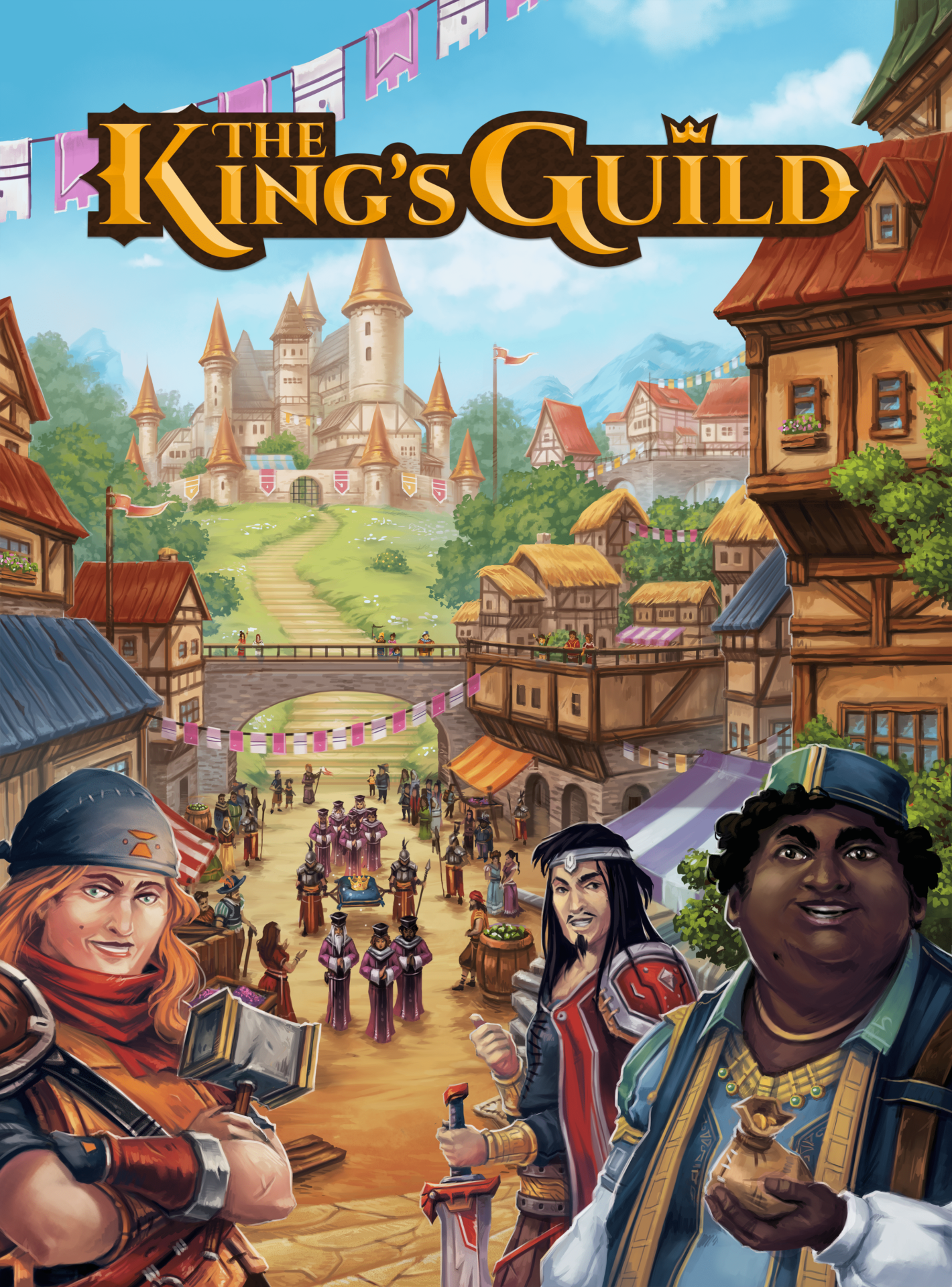
The King’s Guild promised a compelling blend of strategy and economy, where players took on the roles of guild leaders, managing resources, crafting items, and competing for royal favor. At its core, the game revolved around worker placement and set collection, with players gathering materials, fulfilling quests, and upgrading their guild halls to gain advantages over their rivals. On paper, it seemed like a solid follow-up to Guild Masters, the designers’ previous game, with polished mechanics and high replayability.
However, the Kickstarter campaign stumbled in execution. Despite raising about $100,000, delays plagued the project, and when copies finally arrived, many backers were frustrated by component issues, including warping boards and misprinted cards. While the gameplay itself was functional, it lacked the depth and player interaction that many had hoped for, making it feel more like a solitary optimization puzzle than the dynamic guild-building experience advertised. Adding to the disappointment, stretch goals were cut or downgraded due to budgeting miscalculations, leaving backers feeling shortchanged. Ultimately, The King’s Guild wasn’t a total disaster, but it failed to deliver the rich, competitive experience it had promised, making it a forgettable entry in the crowded world of Kickstarter board games.
12 | 12 Realms: Dungeonland
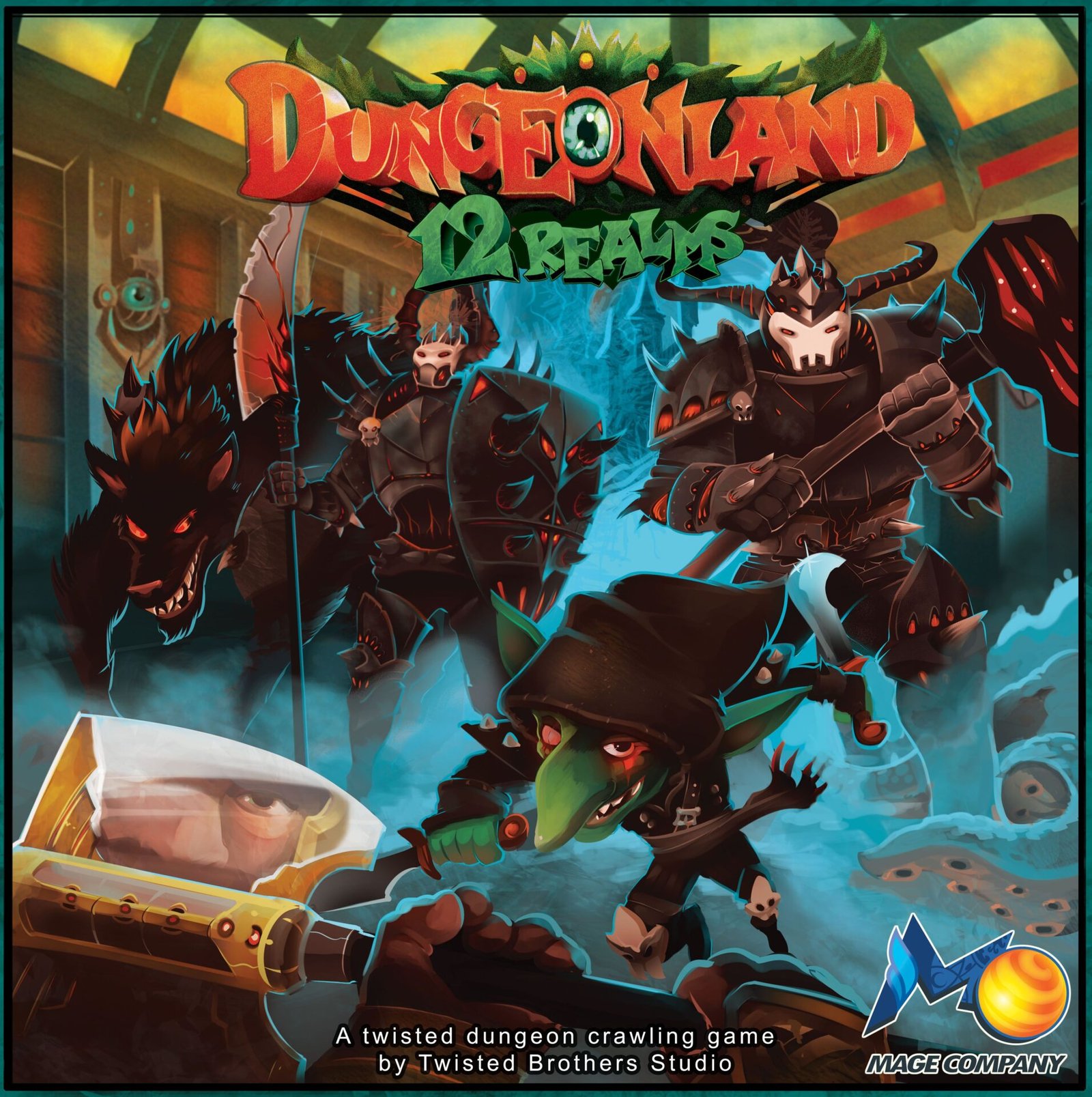
12 Realms: Dungeonland by MAGE Company was an ambitious attempt to blend the fairy-tale universe of 12 Realms with dungeon-crawling mechanics. Funded on Kickstarter in 2017, the game promised a cooperative experience where players would explore modular dungeons, complete quests, and battle fantasy foes while upgrading their heroes. It introduced a campaign-driven narrative with branching choices, AI-driven enemy movement, and a blend of dice-based combat and ability management. On paper, it sounded like a dream mix of strategy and storytelling wrapped in charming, fairy-tale aesthetics.
Unfortunately, 12 Realms: Dungeonland became one of MAGE Company’s most infamous failures. Delays plagued the project, with backers waiting years for fulfillment, only to receive components of questionable quality—warped boards, flimsy miniatures, and rulebooks riddled with errors. The gameplay itself felt unpolished, with clunky mechanics and a lack of balance that made certain scenarios frustrating rather than fun. To make matters worse, communication from the publisher became sporadic, with many backers left in the dark about missing stretch goals and incomplete shipments. What should have been a whimsical dungeon crawl ended up being a cautionary tale in crowdfunding mismanagement.
11| Ghostbusters: The Board Game II
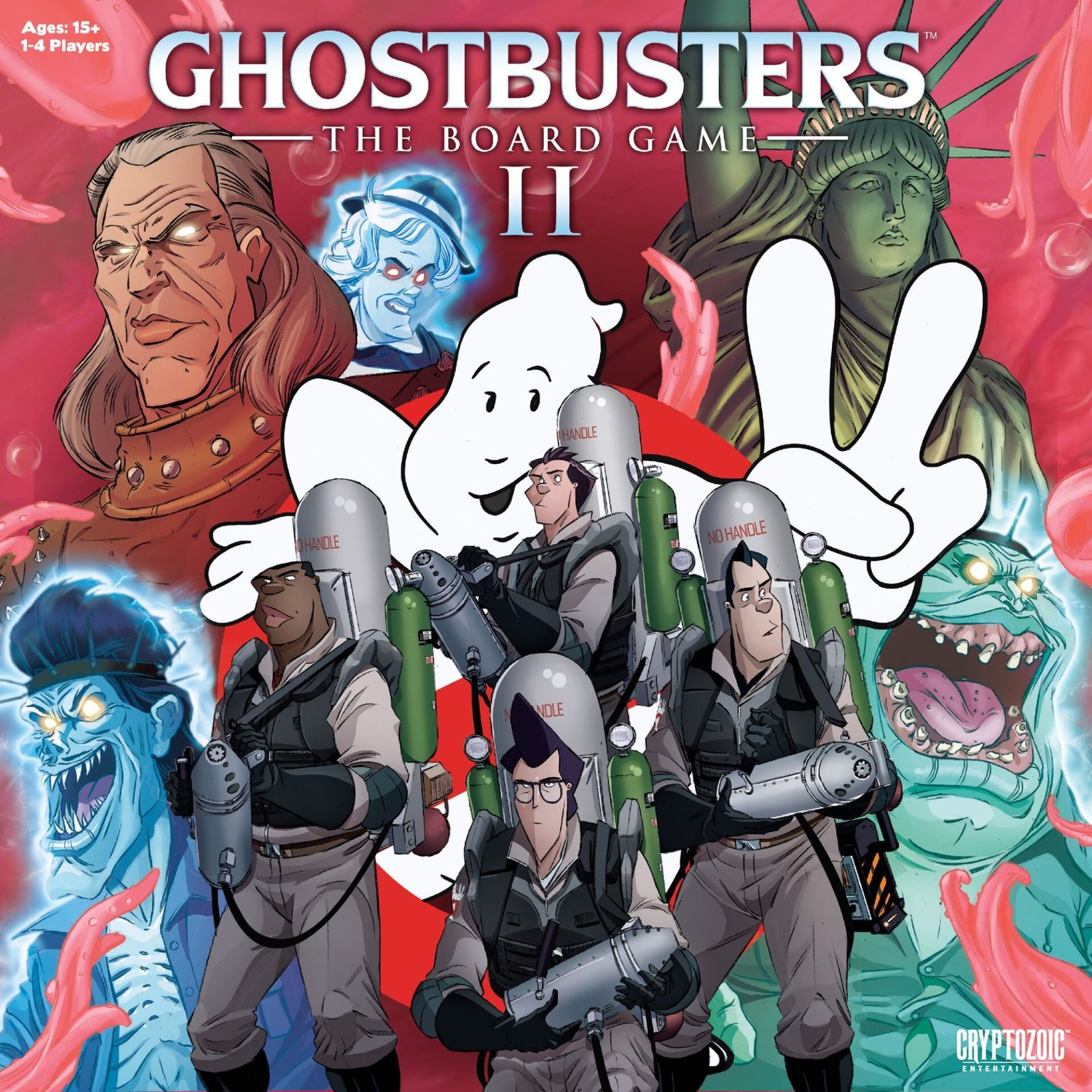
Ghostbusters: The Board Game II, launched by Cryptozoic on Kickstarter in 2016, was the sequel to their 2015 hit cooperative game based on the beloved franchise. Promising expanded gameplay, new ghosts, and mechanics inspired by Ghostbusters II, the project quickly attracted backers eager to relive their paranormal-busting dreams. The game featured tile-based movement, dice-driven combat, and asymmetric character abilities, allowing players to take on the roles of the Ghostbusters as they trapped spirits and closed dimensional rifts. With miniatures of fan-favorite ghosts and an original story campaign, it seemed poised to build upon the solid foundation of its predecessor.
Unfortunately, the project became a major disappointment due to production delays, questionable component quality, and underwhelming gameplay improvements. Many backers reported warped tiles, misprinted cards, and miniatures that felt like a step down from the first game. The promised enhancements to gameplay felt more like minor tweaks rather than meaningful innovations, leading to an experience that was too similar to the original — without the novelty. Worse, the game’s balance issues and awkward mission design made it feel rushed, as if Cryptozoic prioritized shipping over refining the mechanics. By the time it arrived, enthusiasm had waned, and for many fans, it was just another reminder that nostalgia alone isn’t enough to make a game worth playing.
10 | The Walking Dead: No Sanctuary
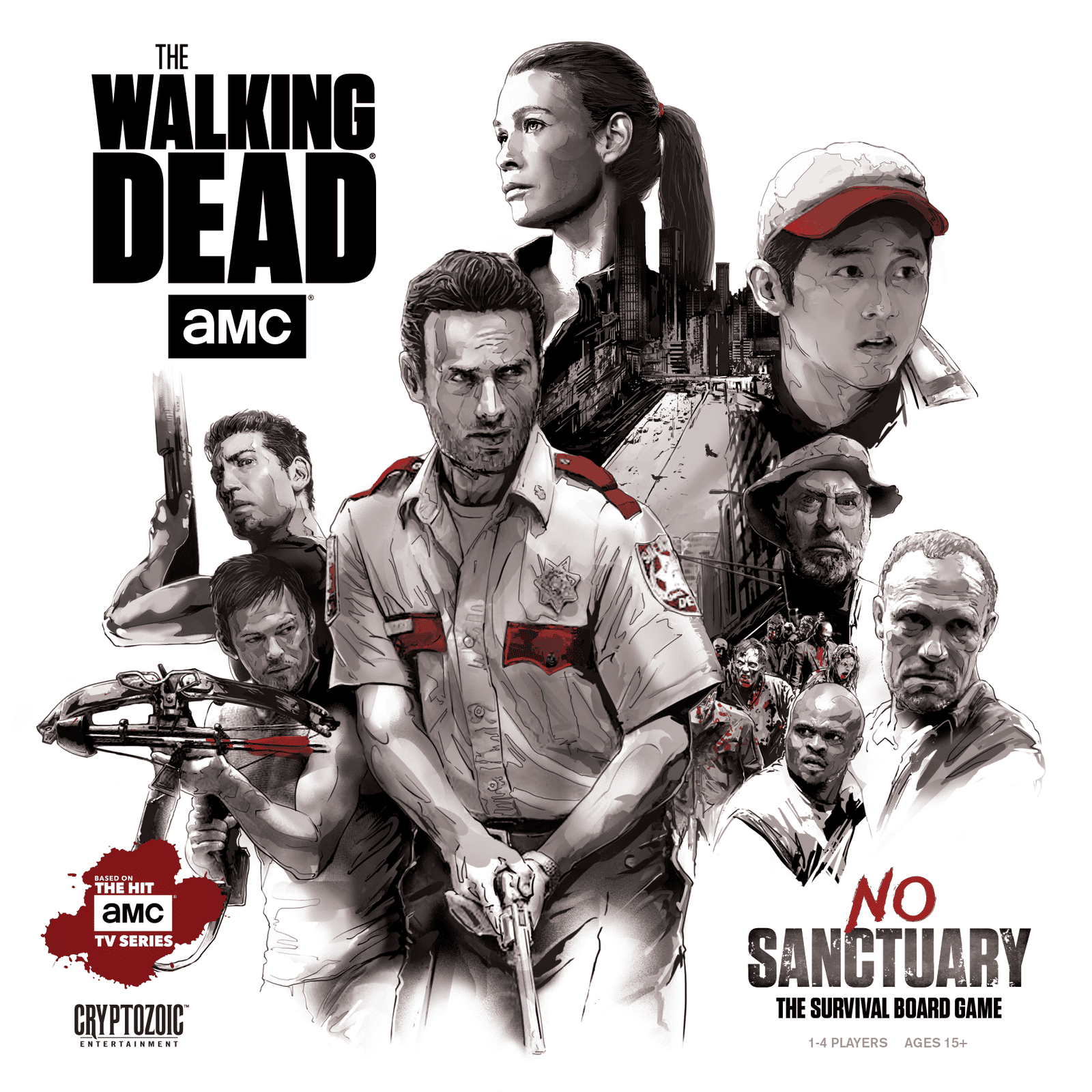
The Walking Dead: No Sanctuary by Cryptozoic aimed to deliver a cooperative board game set in the world of The Walking Dead, promising an intense, decision-driven survival experience. Designed by Adam and Brady Sadler, the game focused on scenario-based play, where players controlled iconic characters like Rick, Daryl, and Glenn, working together to scavenge, fight walkers, and manage their fragile group dynamic. The core mechanics revolved around a unique “leader system”, where one player took charge each round, setting the tone for group actions. Other players could either follow their direction or act independently, but defying the leader risked group morale plummeting, leading to disastrous consequences. Thematically, it seemed to embrace the tension of the show, balancing tough moral choices with strategic survival elements.
Although raising over $400,000 on Kickstarter, the game failed to live up to expectations due to underwhelming gameplay, frustrating mechanics, and lackluster production quality. The “leader system”, intended to foster cooperative decision-making, often felt restrictive and punishing, leading to an unbalanced and frustrating experience. Additionally, the miniatures and components were considered subpar compared to other Kickstarter projects of similar scale, with many backers feeling the final product lacked the polish and refinement expected from a high-profile licensed game. Combined with long delays and a general sense that the game failed to capture the gripping tension of The Walking Dead, No Sanctuary became yet another cautionary tale of how even a strong IP can’t save a game from disappointing execution.
9 | Draconis 8
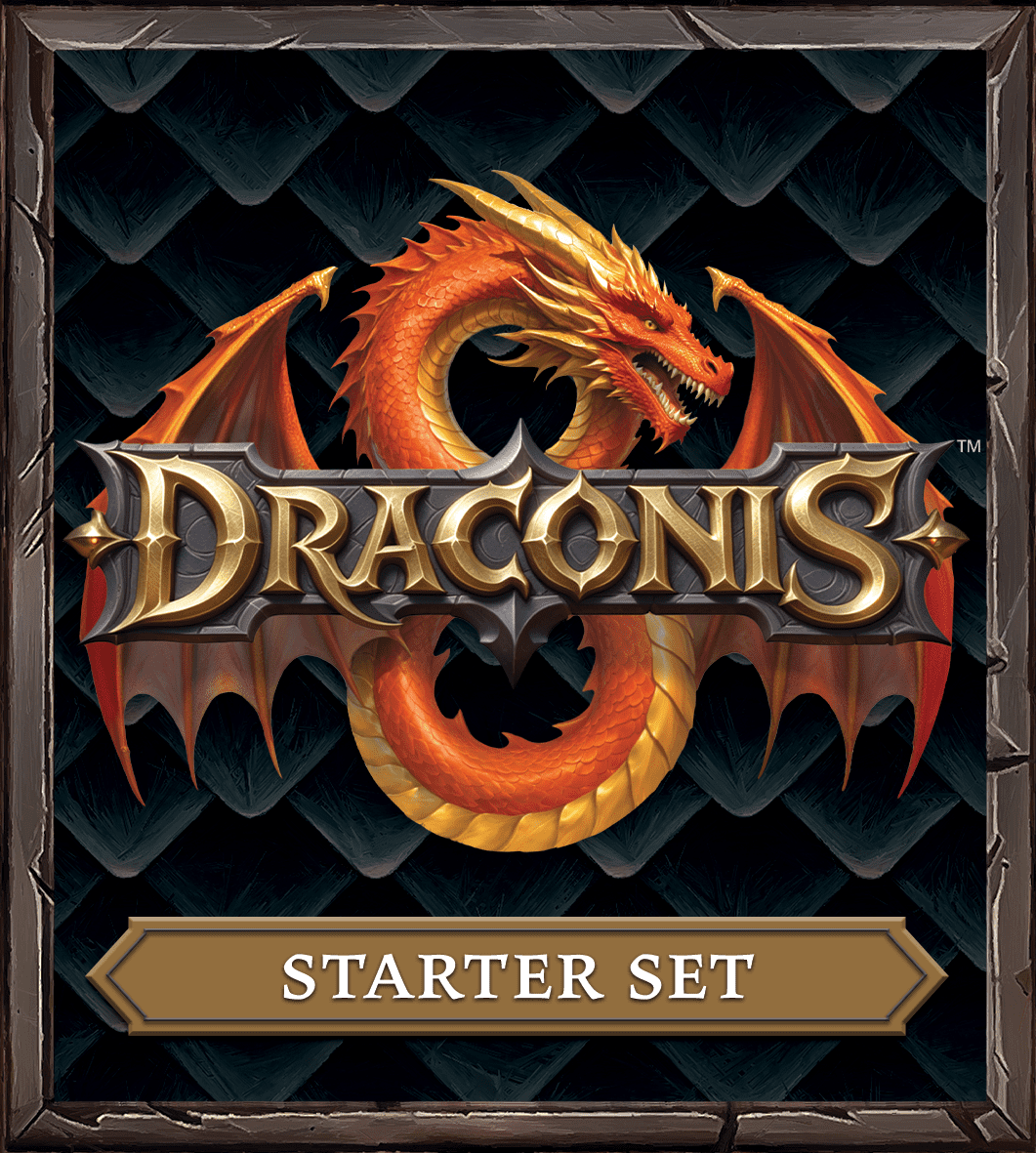
Draconis 8, launched by Wise Wizard Games, aimed to blend the dynamic variety of a trading card game with the strategic depth of a board game. Each $5 pack provided players with a terrain card and a complete eight-card deck, featuring one powerful dragon and seven champions. This design allowed for quick setup and play, with the added innovation of scanning the back of the terrain card to access online gameplay. The game’s core mechanics revolved around strategic deck management and terrain utilization, offering both physical and digital avenues for engagement.
Despite its successful Kickstarter campaign, raising approximately $120,000 from nearly 1,200 backers, Draconis 8 faced significant backlash due to its use of AI-assisted art creation. While the creators were transparent about employing AI as a collaborative tool to produce hundreds of card illustrations, this approach sparked ethical concerns within the tabletop gaming community. Some fans and retailers expressed disappointment, with at least one store deciding to discontinue stocking Wise Wizard Games’ products. This controversy overshadowed the game’s innovative mechanics, leading to its perception as a disappointment in the eyes of many enthusiasts.
8 | Darkest Dungeon: The Board Game
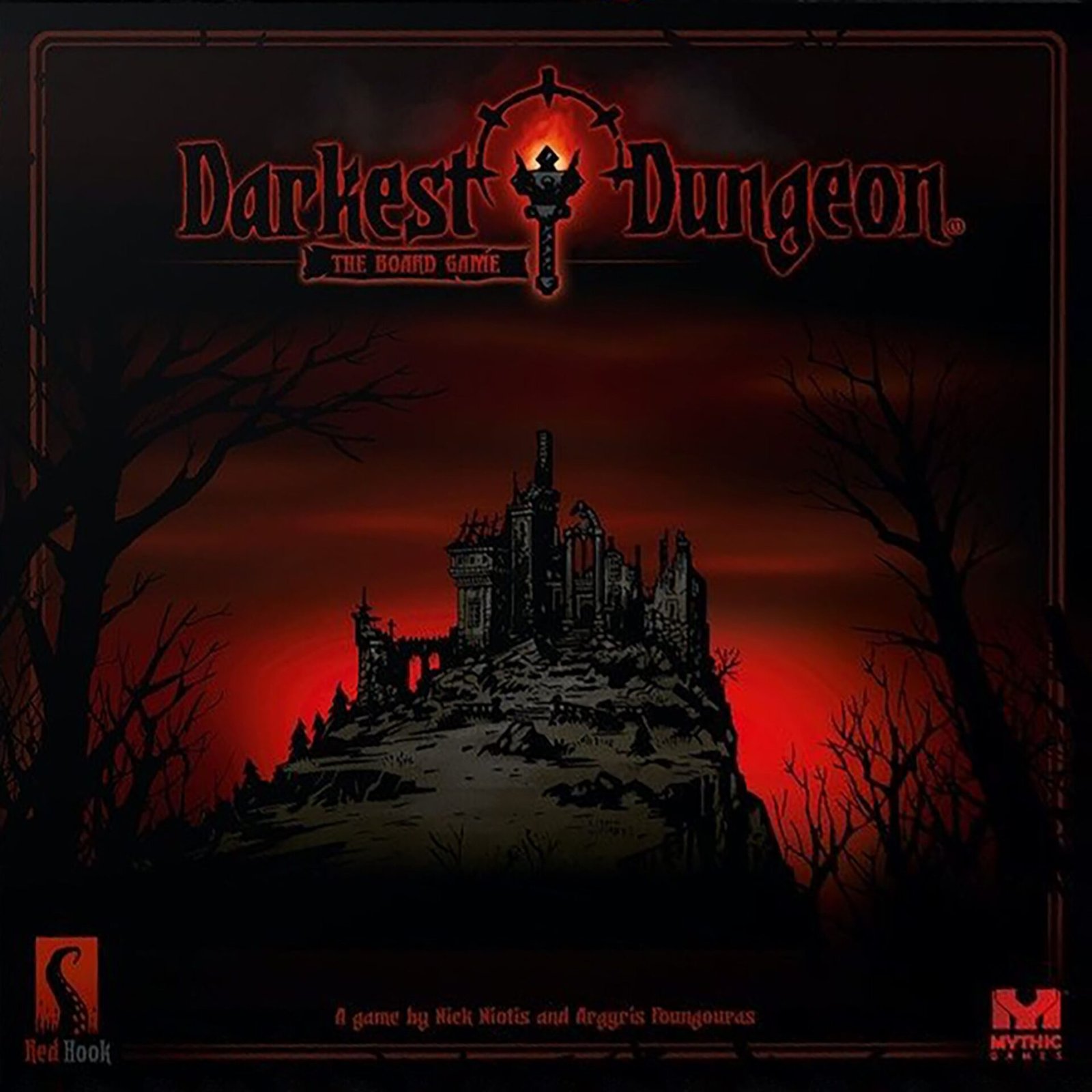
Darkest Dungeon: The Board Game, launched by Mythic Games in 2020, was an ambitious adaptation of the beloved video game, promising a deep, cooperative dungeon-crawling experience that captured the brutal difficulty and stress management mechanics of the original. Designed for 1-4 players, the game featured tactical combat, resource management, and the signature affliction system, where adventurers would accumulate stress and develop quirks that affected gameplay. The lavish miniatures, modular tile-based dungeons, and extensive campaign content made it one of the most highly anticipated tabletop adaptations of a digital title. The campaign raised over $5.6 million, signaling massive interest from fans eager to delve into its punishing world.
Unfortunately, Mythic Games’ handling of the project turned it into one of the most frustrating Kickstarter debacles in recent years. Repeated delays, unclear communication, and unexpected additional charges left backers disillusioned. The most controversial move came in 2023 when Mythic Games demanded additional shipping and VAT fees—sometimes exceeding $100—before fulfilling pledges, despite initial promises. Many backers felt blindsided, with some refusing to pay and losing their rewards altogether. Adding to the disappointment, Mythic Games later offloaded the project to Monolith, raising concerns about long-term support. What should have been a triumphant adaptation of a beloved IP instead became a cautionary tale of overambition, financial mismanagement, and broken trust in the crowdfunding space.
7 | 6: Siege - The Board Game

6: Siege – The Board Game was an ambitious tabletop adaptation of Ubisoft’s hit tactical shooter Rainbow Six: Siege, designed by Mythic Games. The project promised an intense, scenario-driven skirmish game where players controlled teams of specialized operators, each with unique gadgets and abilities, in a destructible environment. The core mechanics revolved around hidden movement, asymmetrical objectives, and strategic planning, attempting to recreate the high-stakes, tactical gameplay of the video game in a turn-based format. With detailed miniatures, destructible walls, and a promise of deep tactical depth, it looked like a dream come true for Rainbow Six fans and board gamers alike.
Unfortunately, the dream quickly turned into a nightmare. Despite raising over $1.5 million on Kickstarter alone, Mythic Games faced severe financial trouble, leading to massive delays, additional shipping costs, and, eventually, the company demanding extra payments from backers just to receive their pledges. The situation worsened as Mythic failed to secure a viable solution, leaving many backers without their games and shattering trust in the company. What was once a highly anticipated adaptation of a beloved franchise became a cautionary tale of overambition, mismanagement, and the risks of crowdfunding in the tabletop industry. Mythic Games subsequently had to file for insolvency.
6 | HEL: The Last Saga
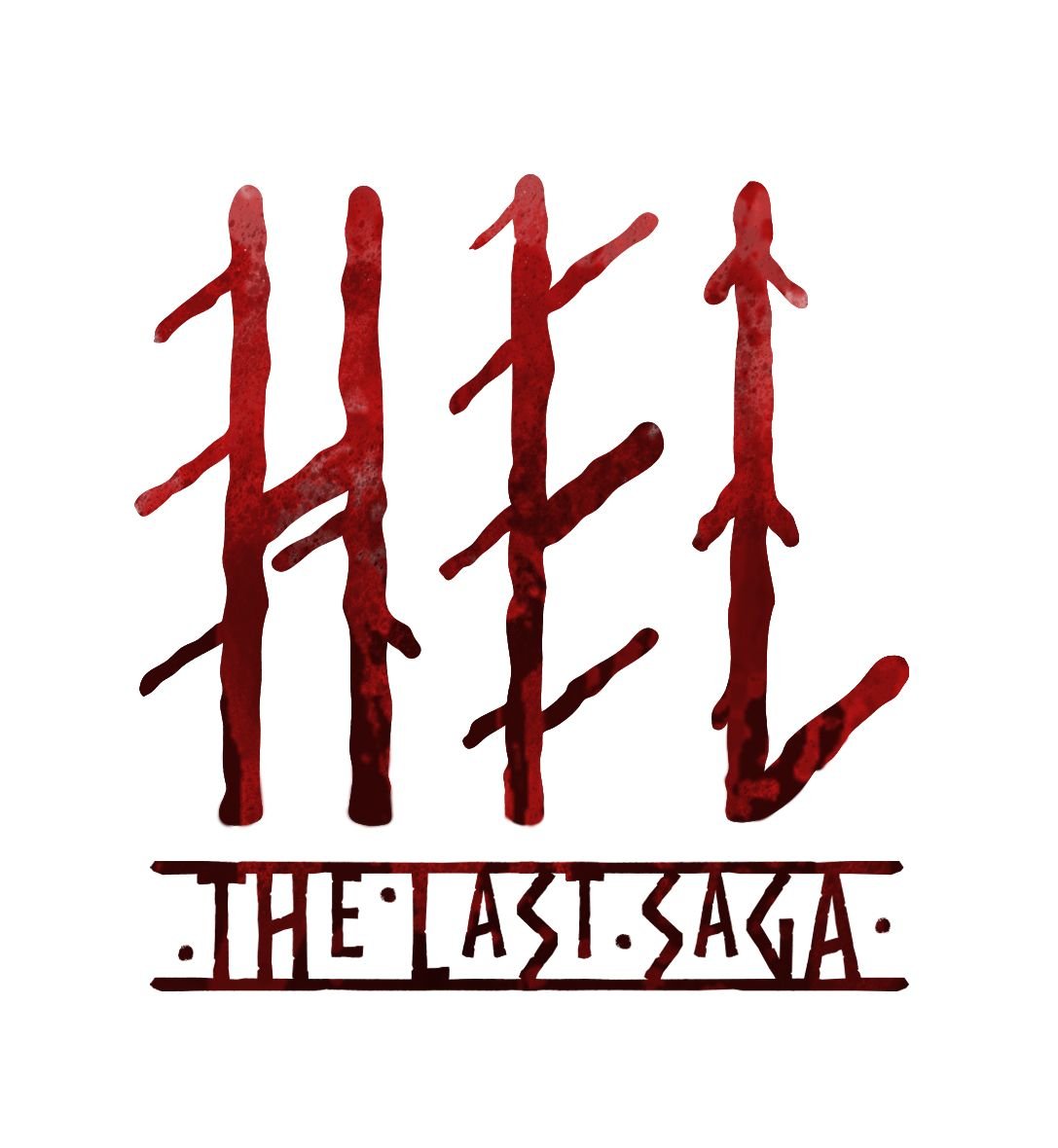
HEL: The Last Saga, a Viking-themed cooperative survival horror game from Mythic Games, promised an immersive narrative-driven experience where players would lead a group of Norse explorers uncovering the fate of a lost settlement. The game combined tactical combat, resource management, and branching story choices, with a heavy focus on exploration and survival. Designed as a campaign-driven game with strong RPG elements, HEL aimed to deliver deep storytelling and tense decision-making, blending Viking myth with psychological horror. Its grim, atmospheric setting and highly detailed miniatures generated massive hype, making it one of Mythic’s most anticipated projects.
Unfortunately, HEL: The Last Saga became another cautionary tale in Mythic Games’ troubled history. Despite raising over $2 million on Kickstarter in 2020, the project faced extensive delays, communication breakdowns, and mounting financial concerns. Backers grew increasingly frustrated as updates became vague, and Mythic’s ongoing financial struggles put the game’s future in jeopardy. In 2023, the company announced that additional funding was required to fulfill the game, asking backers to pay more to receive their pledges—a move that sparked outrage. With Mythic offloading unfulfilled projects to third parties and its credibility in free fall, HEL: The Last Saga became yet another high-profile disappointment in the Kickstarter tabletop scene.
5 | Banner Saga: Warbands
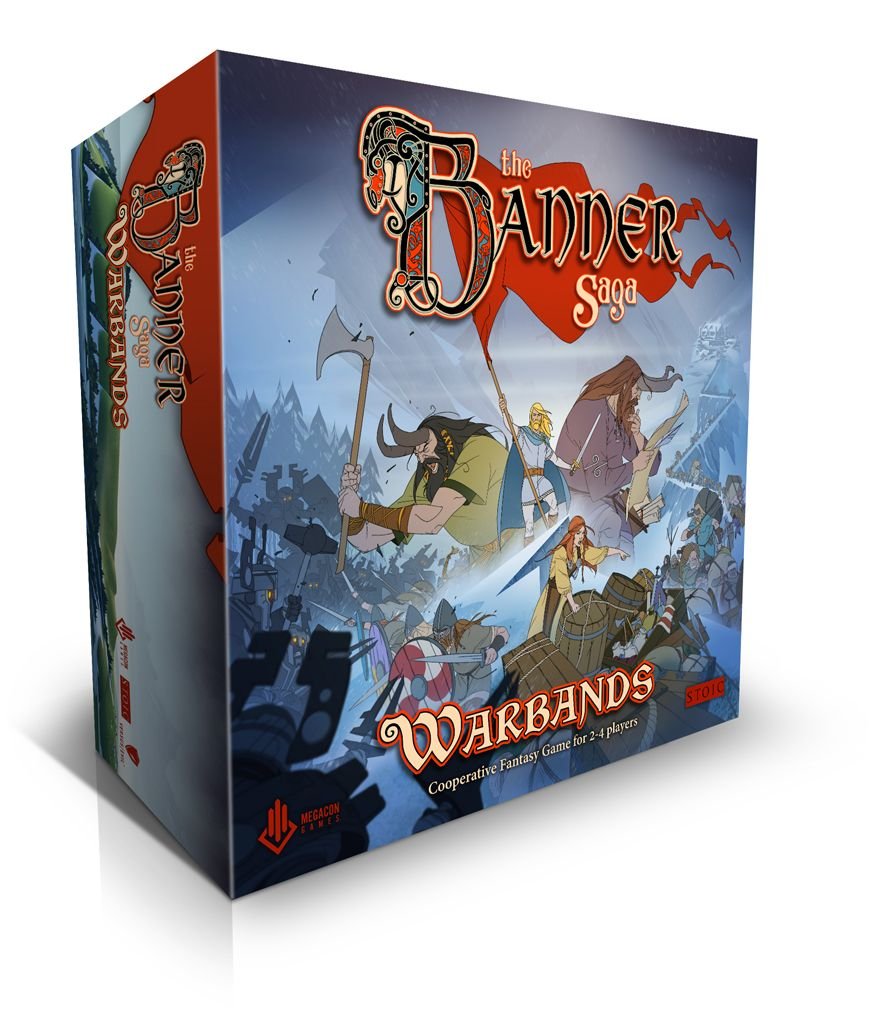
Banner Saga: Warbands, the board game adaptation of the beloved tactical RPG series by Stoic, was supposed to capture the same sense of hard choices, grim survival, and deep storytelling that made the video game a hit. Designed by Megacon Games, the project promised a cooperative experience where players would take on the roles of different warband members, each with unique abilities, working together to survive as they traveled across a dying world. The core mechanics revolved around managing resources, making tough moral decisions, and engaging in strategic battles—elements that fit perfectly with the Banner Saga’s themes.
But the project ended up being a massive letdown. While the board game did eventually ship, it suffered from long delays, a lack of communication, and significant issues with component quality. The gameplay itself felt underwhelming, failing to capture the tension and depth of the digital experience, instead coming across as repetitive and lacking real strategic weight. Many backers also reported that the rulebook was confusing and poorly organized, making the game frustrating to learn. Adding to the disappointment, Megacon Games ran into financial trouble, leaving some stretch goals unfulfilled and future support for the game uncertain. What was meant to be a rich and immersive experience instead became yet another cautionary tale of how a strong IP doesn’t always translate into a great tabletop game.
4 | Myth: Journeyman Modules
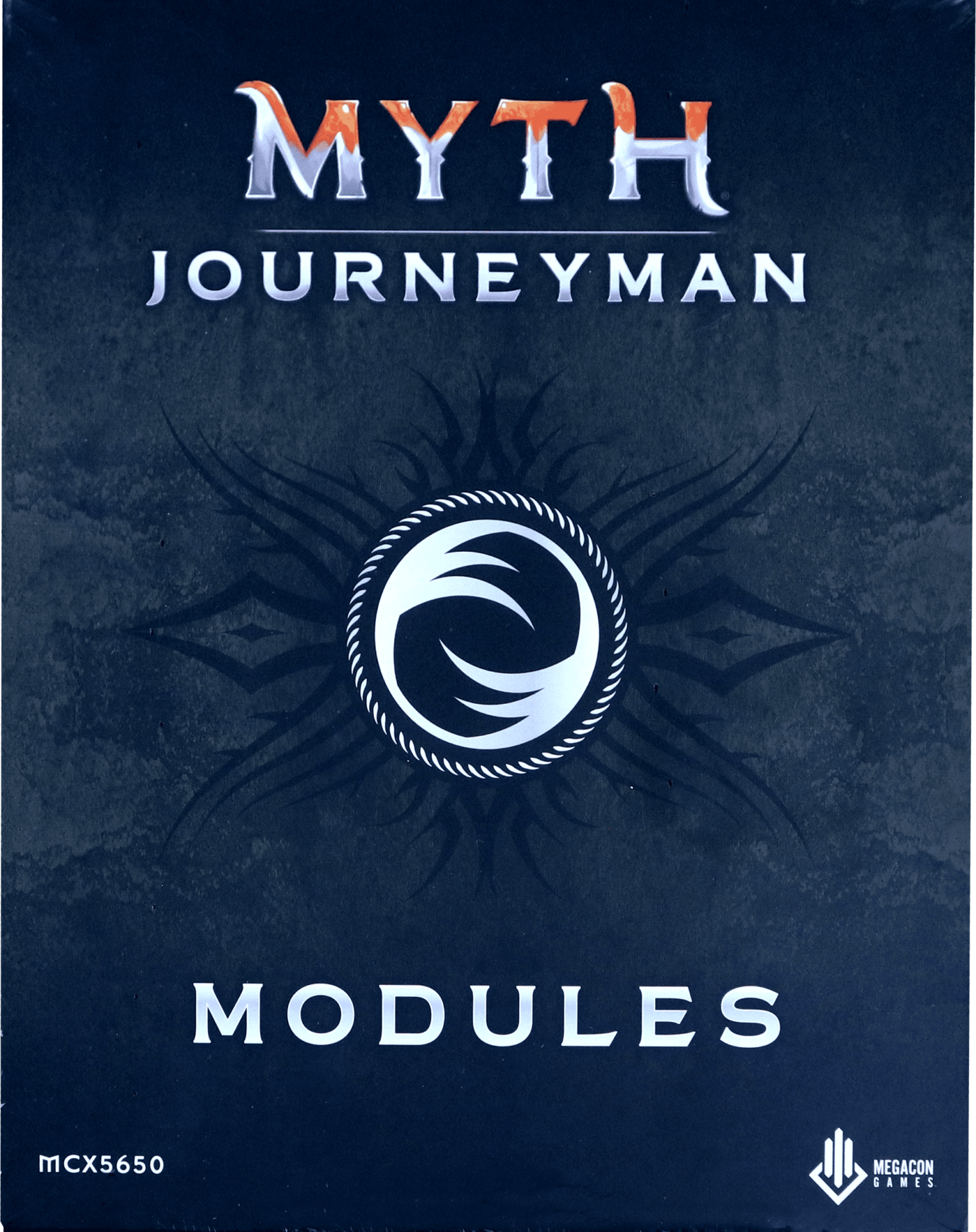
Myth: Journeyman by Megacon Games was the ambitious expansion to their cooperative dungeon-crawling board game Myth. Building upon the original’s promise of deep character progression, asymmetric hero abilities, and a GM-less system, Journeyman sought to refine the experience with new classes, expanded campaign elements, and a more structured narrative. The game retained its unique action-card-driven mechanics, where players controlled their turns by playing ability cards, balancing threat generation to avoid overwhelming enemy responses. The promise was grand—more polish, better rules clarity, and a smoother play experience for fans who had struggled with Myth’s notoriously vague original rulebook.
Unfortunately, Myth: Journeyman became a cautionary tale in overpromising and underdelivering. Despite raising nearly a million dollars on Kickstarter, backers faced years of delays, miscommunication, and a chaotic fulfillment process that left many without their rewards. The core rulebook remained plagued by unclear mechanics, forcing fans to cobble together house rules just to make the game function. Megacon Games’ struggles with logistics and production ultimately led to a broken trust with their community, and in 2019, they effectively shut down, leaving Journeyman as an unfulfilled dream for many. What should have been a triumphant refinement of Myth instead became one of the most frustrating Kickstarter disappointments in tabletop history.
3 | Super Dungeon: Legends
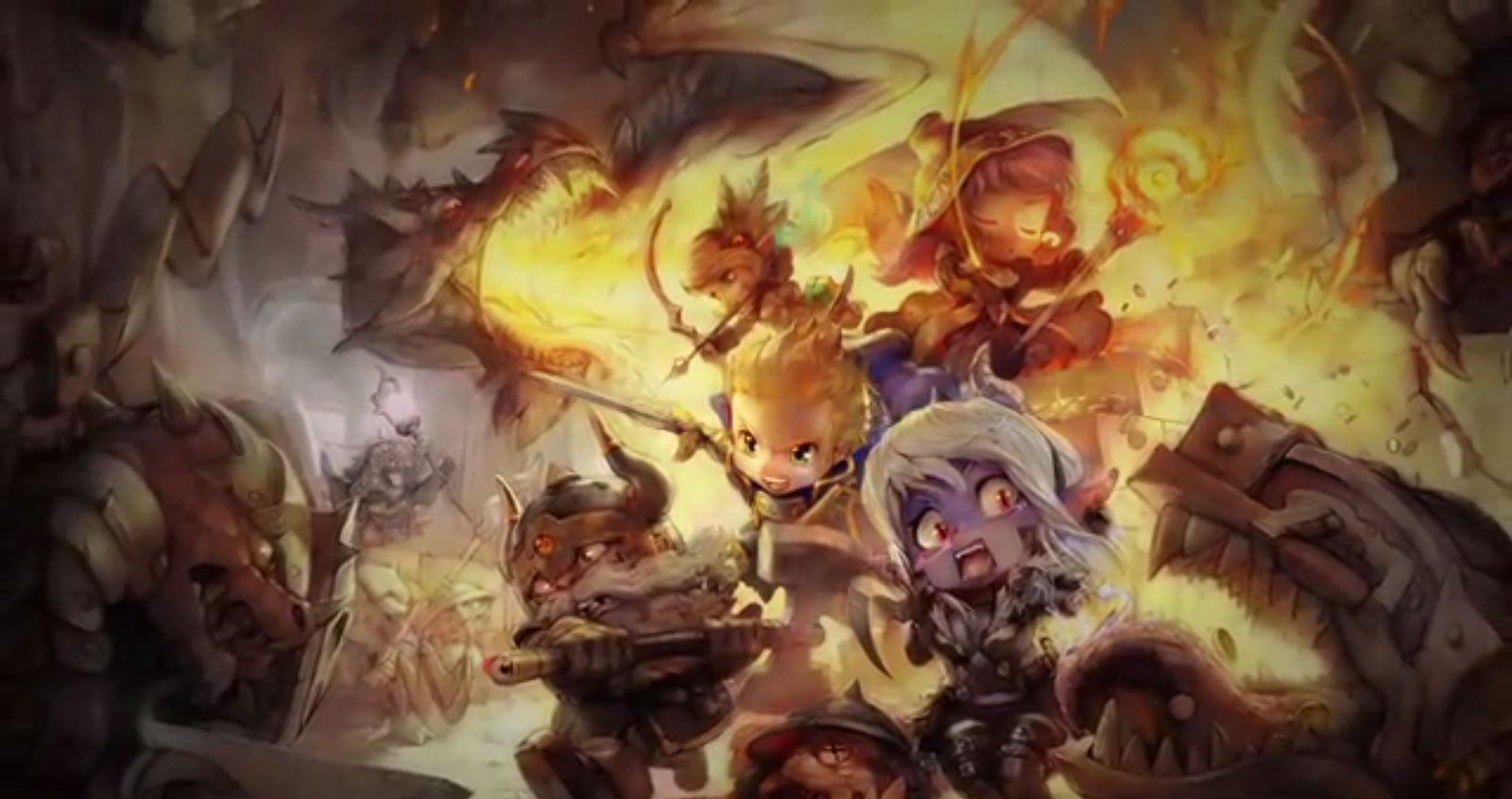
Super Dungeon Explore: Legends was meant to be the ultimate evolution of Super Dungeon Explore, a beloved dungeon-crawling board game with chibi miniatures and fast-paced, arcade-style combat. The Kickstarter promised an ambitious upgrade—introducing a fully realized campaign mode, persistent character progression, and a deep narrative-driven experience. Players would level up heroes between sessions, gaining new skills and loot while facing off against hordes of adorable yet deadly enemies controlled by either an AI system or an Overlord player. The campaign crushed its funding goal, pulling in over $1.2 million, and backers eagerly awaited a game that would expand the Super Dungeon universe into a living, breathing adventure.
Unfortunately, Super Dungeon Explore: Legends quickly became a cautionary tale of mismanagement and broken promises. Years passed without delivery, as Soda Pop Miniatures and Ninja Division struggled with financial woes, missed deadlines, and poor communication. Updates became sporadic, shifting from hopeful reassurances to grim reality as the company admitted it lacked the funds to fulfill pledges. By 2019, Ninja Division effectively collapsed, leaving backers without their games and little hope of refunds. The project remains one of the most infamous Kickstarter failures in tabletop history, a painful reminder that even the most promising campaigns can crumble under the weight of their own ambition.
2 | The Terminator: The Official Board Game
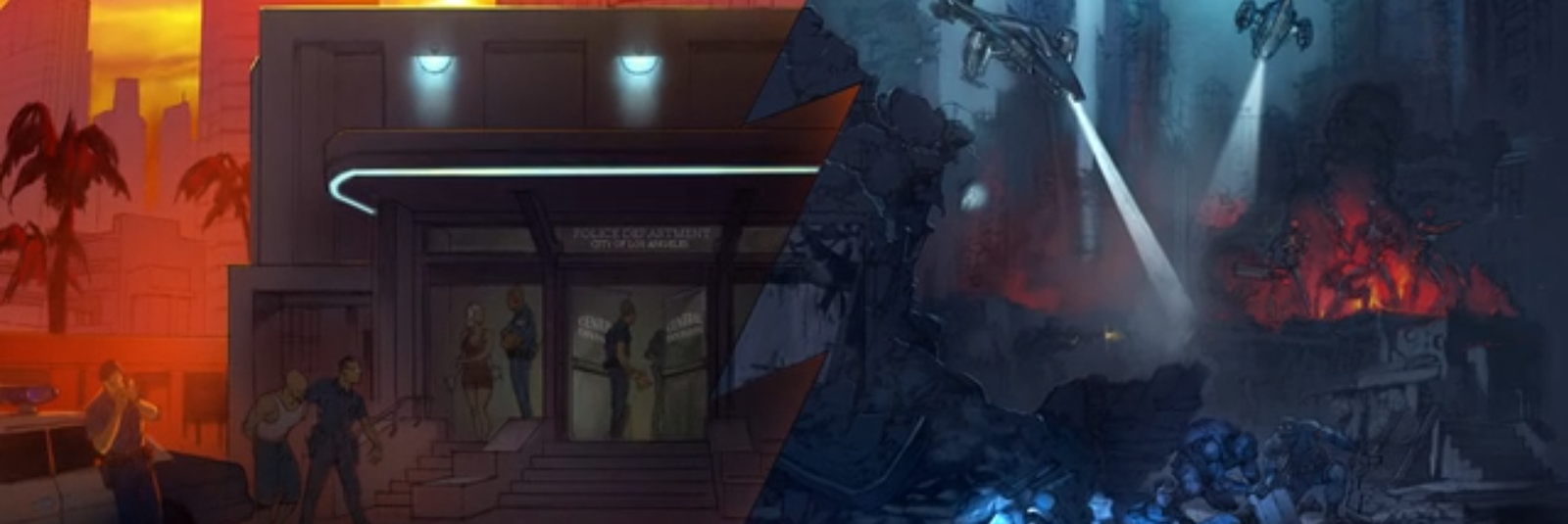
The Terminator: The Official Board Game by Space Goat Productions promised fans a tactical, asymmetrical board game set in the dark future of James Cameron’s The Terminator. Pitched as a one-versus-many experience, the game featured one player controlling Skynet’s relentless machines while the others led the human resistance in a desperate fight for survival. Its mechanics blended hidden movement with dice-based combat and resource management, aiming to capture the tension of outmaneuvering an unstoppable force. With the nostalgia factor and a beloved IP, the campaign easily crushed its $120,000 goal, raking in over $220,000 from eager backers.
Unfortunately, The Terminator: The Official Board Game became one of the most infamous Kickstarter failures in the tabletop space. Space Goat Productions quickly ran into financial trouble, leading to repeated delays, vague updates, and eventually radio silence. Despite promises, no copies of the game ever shipped, and in 2019, Space Goat filed for bankruptcy, leaving backers with nothing but frustration. The company’s mismanagement of funds and overextension—having launched multiple projects without delivering—cemented this as a cautionary tale in crowdfunding. To this day, The Terminator: The Official Board Game remains a grim reminder that even well-known franchises and ambitious mechanics mean nothing if the publisher can’t follow through.
1 | Evil Dead 2: The Board Game

Evil Dead 2: The Board Game, launched by Space Goat Productions in 2016, promised fans a thrilling co-op experience set in the cult-classic horror universe. Designed as a scenario-based survival game, players would work together to fight off Deadites, collect key items, and escape the infamous cabin while reliving moments from Sam Raimi’s legendary film. The game featured modular map tiles, character miniatures, and dice-based combat, aiming to blend strategic movement with chaotic horror-action. With a strong license, engaging mechanics, and a fanbase eager for more Evil Dead content, the campaign easily surpassed its funding goal, raking in over $700,000.
Unfortunately, this project became a textbook Kickstarter disaster. Space Goat Productions faced severe financial mismanagement, with backers left in the dark as delays mounted. Updates became sporadic, and by 2018, it was clear the company had burned through the funds without producing the game. Bankruptcy followed, leaving thousands of backers with nothing to show for their investment. The disappointment deepened when Jasco Games later acquired the rights and successfully published a separate Evil Dead 2: The Board Game — proving that the concept was viable, just not under Space Goat’s leadership. This failure became one of the most infamous cautionary tales in tabletop crowdfunding history.












